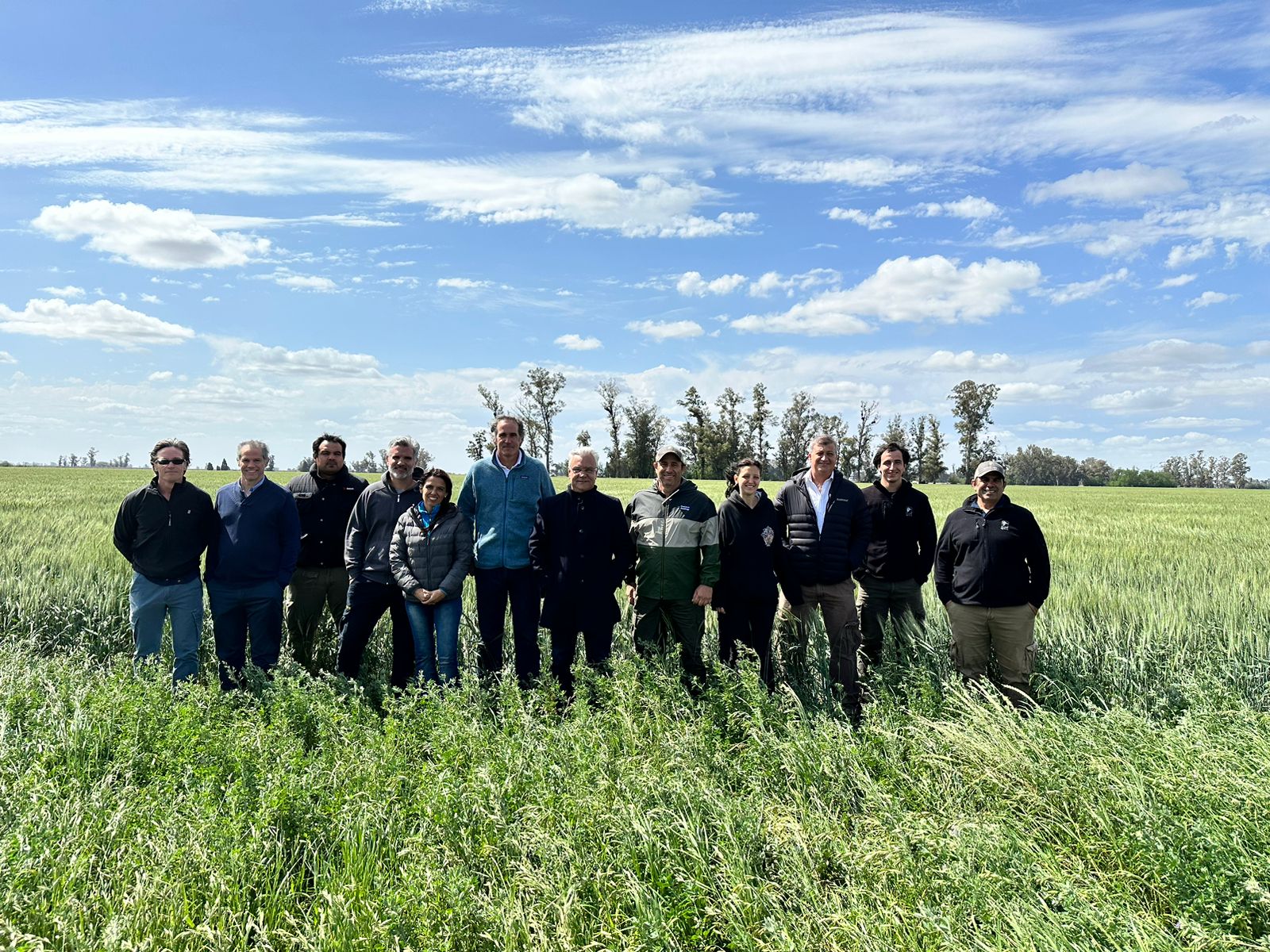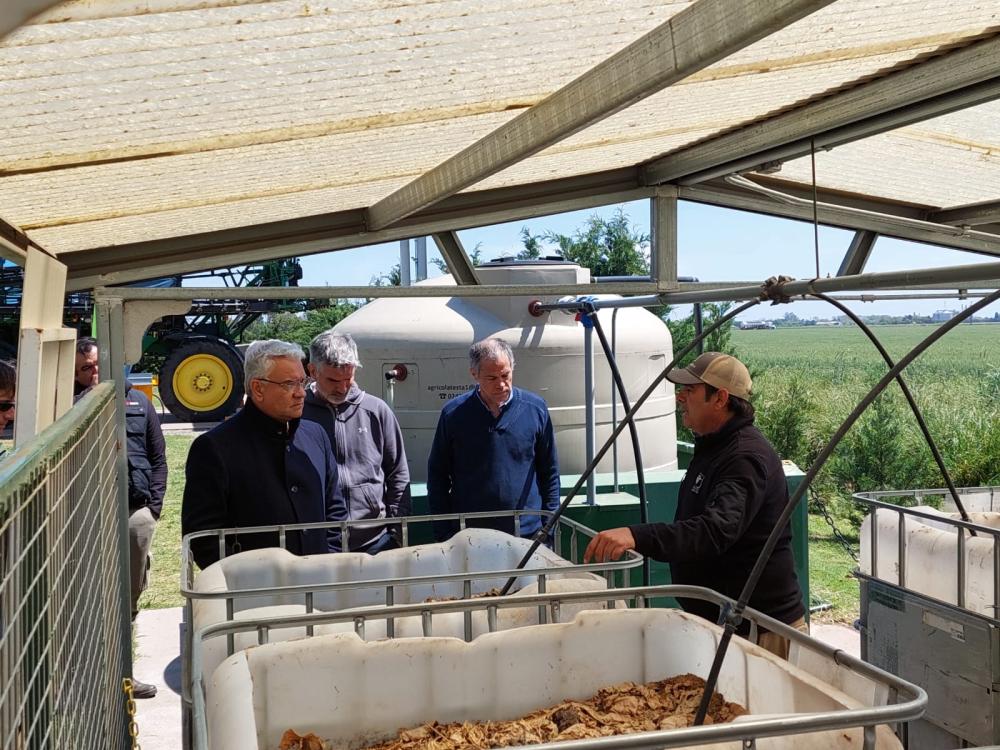The Bayer initiative is being implemented on 24 agricultural demonstration plots in 12 countries around the world.

Buenos Aires, October 20, 2023 (IICA). On Bayer’s invitation, the Representative of the Inter-American Institute for Cooperation on Agriculture (IICA) in Argentina, Fernando Camargo, visited one of the farm plots where progress has already been made with the application of good agricultural practices with concrete results.
The plot is located near the city of Pergamino – in the Pampas Region, one of the most important agricultural production areas in the world – and is part of the Bayer ForwardFarming project.
Through this network, Bayer works with partners and independent producers in various parts of the world to demonstrate how digital tools and modern practices can help farmers not only produce healthy food, but also improve their yields and boost their income.
One of the purposes of ForwardFarming is to provide tools and training to new producers and agronomy students. The model is based on the premise that the three facets of sustainability – the economic, social and environmental dimensions – must go hand in hand. Bayer’s initiative is being carried out on 24 demonstration plots in 12 countries around the world.
Bayer works closely with IICA on the application of science and technology to agrifood production across the Americas. It is also one of the private sector actors involved in the Interpretative Center for Tomorrow’s Agriculture (CIMAG), a project designed to show what production will be like the future that has been operating at IICA headquarters, in San José, Costa Rica, since 2021.
Training and dialogue
Camargo visited Agrícola Testa, an 1130-hectare property in the province of Buenos Aires where agriculture has been practiced for more than 100 years by three generations of the same family. Today, it hosts training courses and fosters dialogue between the agricultural sector and the community about how innovative technologies can contribute to the care of the environment and resilience to the impact of climate change.
The IICA representative in Argentina visited the farm plot with Bayer Cono Sur executive Federico Garat, and IICA/Argentina Agricultural Health and Food Safety Specialist Tomás Krotsch. Technical personnel from the National Agrifood Health and Quality Service (SENASA) also took part in the activity.
The technologies on show included tools for decontaminating wastewater left by machines used for fumigation and drones used for precision spraying. The visitors also visited the areas planted with cover crops to protect soil health and the buffer zones designed for the correct use of herbicides.

Camargo explored the role that IICA can play in disseminating information on sustainable agricultural practices generated on these farms for the benefit of Argentina’s producers.
“For IICA, it is essential to build bridges with the private sector, a key player in the construction of more sustainable, more productive agriculture designed to contribute to the well-being of rural communities. New technologies, science and research are key elements in the transformation of agricultural production already under way in our continent,” Camargo said.
More information:
Institutional Communication Division.
comunicacion.institucional@iica.int











